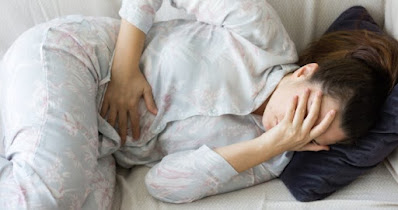Biological Age Versus Chronological Age: What Is It and Should You Worry About It?
Introduction
Chronological
age is the actual amount of time a person has been alive. This amount is
measured in years, months, and days. Unlike a person’s actual age, biological
age, on the other hand, reflects how well a person’s body is functioning, in
comparison to their actual age, and is often used as a measure of a person’s
fitness and general aging rate.
Although
actual age is a specific number, biological age can vary depending on various
factors. These factors are such as lifestyle, environmental conditions and
genetics. For example, a person who exercises regularly, while eating a healthy
diet, and avoids smoking and excessive alcohol consumption, may have a
biological age that is younger than their actual age, compared to other people
of the same age who are diametrically opposite in behavior.
Conversely,
a person who engages in unhealthy behaviors may have a biological age that is
older than their actual age in comparison to other people of that age, who are
diametrically opposite in behavior.
How
is Biological Age determined?
There
are various methods used to estimate a person’s biological age. These methods
include blood tests, imaging tests, and questionnaires. Some of the things that
can be considered during the testing exercise include blood pressure, levels of
cholesterol in the blood circulation, muscle mass, respiratory efficiency,
systemic inflammation, and the state of body’s immune function.
By
assessing biological age, health professionals can gain a better understanding
of a person’s overall health, and the risk of diseases they may face; and they
can make recommendations aimed at changing his lifestyle, or measures to help
him slow down the aging process and improve his overall health.
What
are the important steps to take if you find out that your biological age is
older compared to where you should be based on your actual age?
Some
important steps are the following:
- Take steps to reduce stress hormones in your cycle. These steps include
learning to eliminate the causes of stress in your life, as well as using
nutrients that reduce the effects of these hormones.
- Reduce the consumption of sugar and starchy foods, especially processed ones.
- Reduce the use of vegetable oils and use saturated fats like ghee, butter, and
coconut oil for cooking
- Make sure you get enough sleep. It is recommended to sleep for 6–8 hours daily
- Make sure you drink enough water every day. It is recommended that every 25 kg
of body weight gets at least one liter of water per day.
- Get enough sunlight every day. Experts recommend that some exposed skin should
receive sunlight for at least 15–30 minutes daily.
- Make sure that most of your diet is the one that leaves a large amount of
alkaline minerals in the body. According to experts, the only foods rich in
such minerals are leafy vegetables and fruits.
- Make sure part of your diet includes foods with active enzymes. Foods
containing active enzymes include fermented milk, raw honey, raw eggs, raw
vegetables and fruits. However, great care is needed during the preparation of
these foods to kill germs and remove residues of pesticides used in the fields.
Soaking these vegetables in white vinegar for five minutes and then rinsing
them thoroughly with clean water has proven to satisfy this need.
- Exercise every day. Walking a distance of 3 to 4 kilometers every day is a very
good exercise that almost all people can do without harming themselves.
- If
the environment you live in is highly polluted take action to minimize exposure
s well as measures to help you detox.
- Limit voluntary exposure to toxins contained in processed foods, cosmetics, and
household items like soaps, detergents and aerosols. This means building a
habit of reading content lists on labels and choosing products whose safety is
assured.
- Stop poor lifestyle habits like smoking and drinking alcohol.
Conclusion
When
it comes to optimizing your health, you are never too late. As soon as you get
the right information about what you should do, it is important to start taking
action regardless of the situation you are in at the time. How your body
behaves depends on various stimuli that it interacts with every day. The right
stimuli will make your body give the right response and the wrong stimuli will
make it respond accordingly.
For example, accumulated toxins in your body put a
lot of pressure on your immune system. Due to this the immune system may get
confused and start to behave erratically. It is believed that many autoimmune
diseases are due to this. Detoxing relives the pressure on the immune system
and gradually it starts functioning properly again. When this happens those
autoimmune diseases also disappear.



Comments
Post a Comment